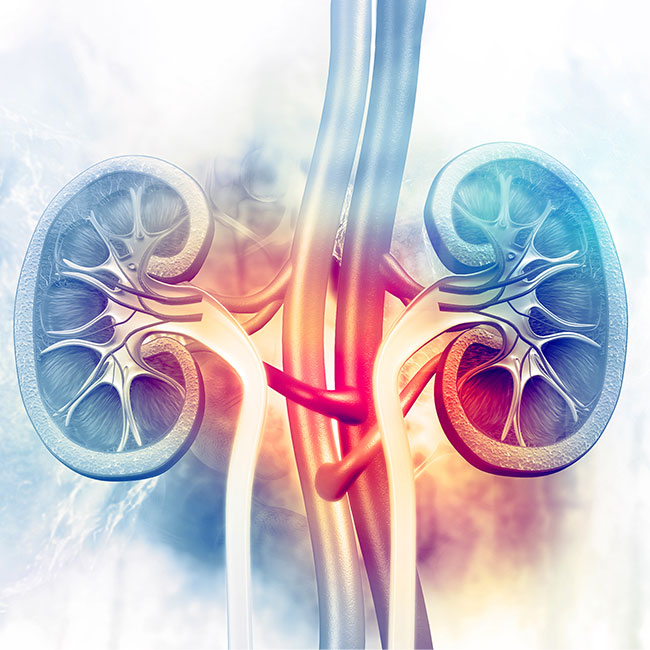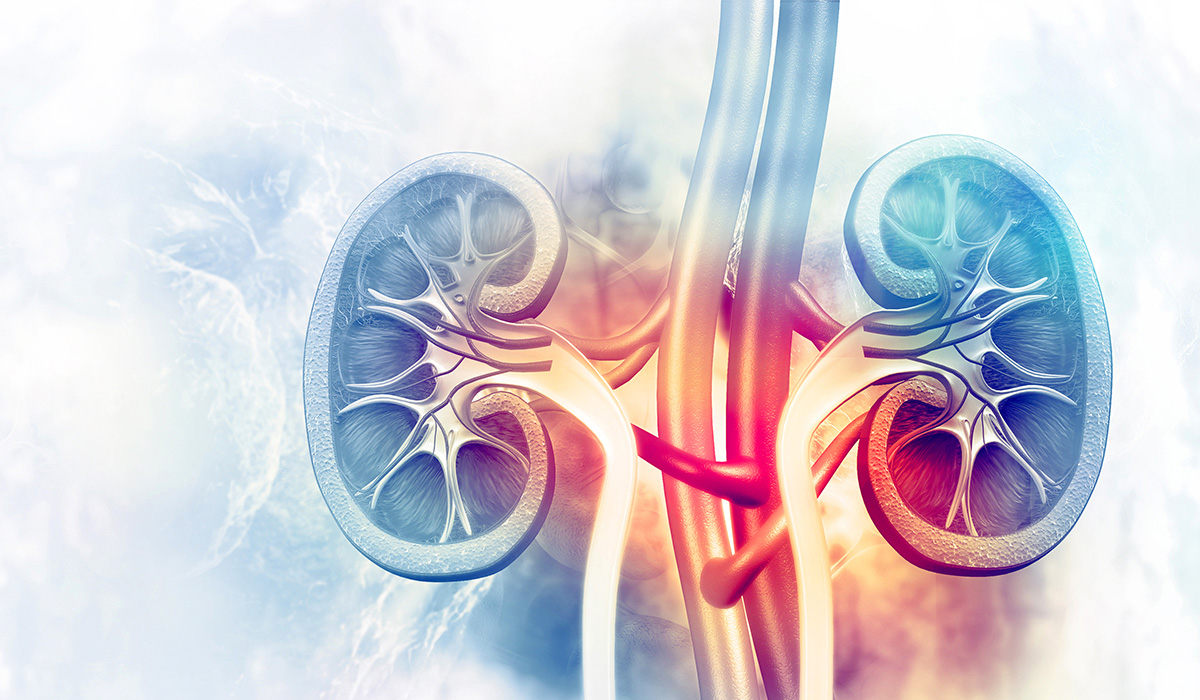


What do kidneys do?
- They remove toxins, excess water and waste products
- Kidneys play a vital role in regulating your blood pressure
- They activate vitamin D to help keep your bones and muscles in good shape
- They’re essential for a healthy body
Why you shouldn’t ignore your kidneys
Most of the time, kidneys work normally without any issues but sometimes they can be damaged or stop working so well. This is known as chronic kidney disease. CKD is a condition that affects 1 in 10 people in Great Britain. Find out how you can improve your kidney health.
Early diagnosis and treatment, as well as changes to your diet and lifestyle, are vital and can often help slow down or prevent any further damage. However, if kidney disease goes undetected or is not managed well, it can progress to kidney failure, which is fatal without treatment. Patients with kidney failure need regular dialysis or a kidney transplant. There is no cure.
Some other types of kidney disease, including inherited conditions, are not preventable but can be managed.
The BIG impact on your life
Having kidney disease affects more than your physical health. It also impacts your social life, relationships and emotional wellbeing. Imagine visiting the hospital three times a week for a four-hour dialysis session – how would you fit this around work, or looking after children, or going on holiday?
Are you at risk?
Although anyone can develop kidney disease, here are some factors that can increase your risk:
- Diabetes
- High blood pressure
- Heart and circulatory disease
- Family history of kidney disease
- A black, Asian or minority ethnic background could mean an increased risk of developing kidney failure more quickly
Signs and symptoms of kidney disease
Kidney disease in its early stages is very hard to detect. It's possible to lose 90% of your kidney function before you see any symptoms.
These symptoms include:
- reduced appetite
- swollen ankles
- lack of concentration
- fatigue
- foamy urine
- blood in the urine
How Kidney Charities Together (KCT) can support you
The seven charities that together make up the KCT group supports kidney patients with information and guidance in a number of complementary ways:
- Kidney Care UK works to ensure no one faces kidney disease alone
- Kidney Research UK champions patient voices and funds research into kidney treatments and cures
- Kidney Wales unites the Welsh kidney community to support world-class care and deliver wellbeing services
- The National Kidney Federation (NKF) provides an array of patient support services for those living with kidney disease and their families. The charity also campaigns for improvements to renal provision and treatment
- PKD Charity offers expert information and support for managing polycystic kidney disease
- Popham Kidney Support provides support to children, youths and adults with kidney disease and their families in Wales
- The UK Kidney Association plays a major role in training doctors and developing clinical services











